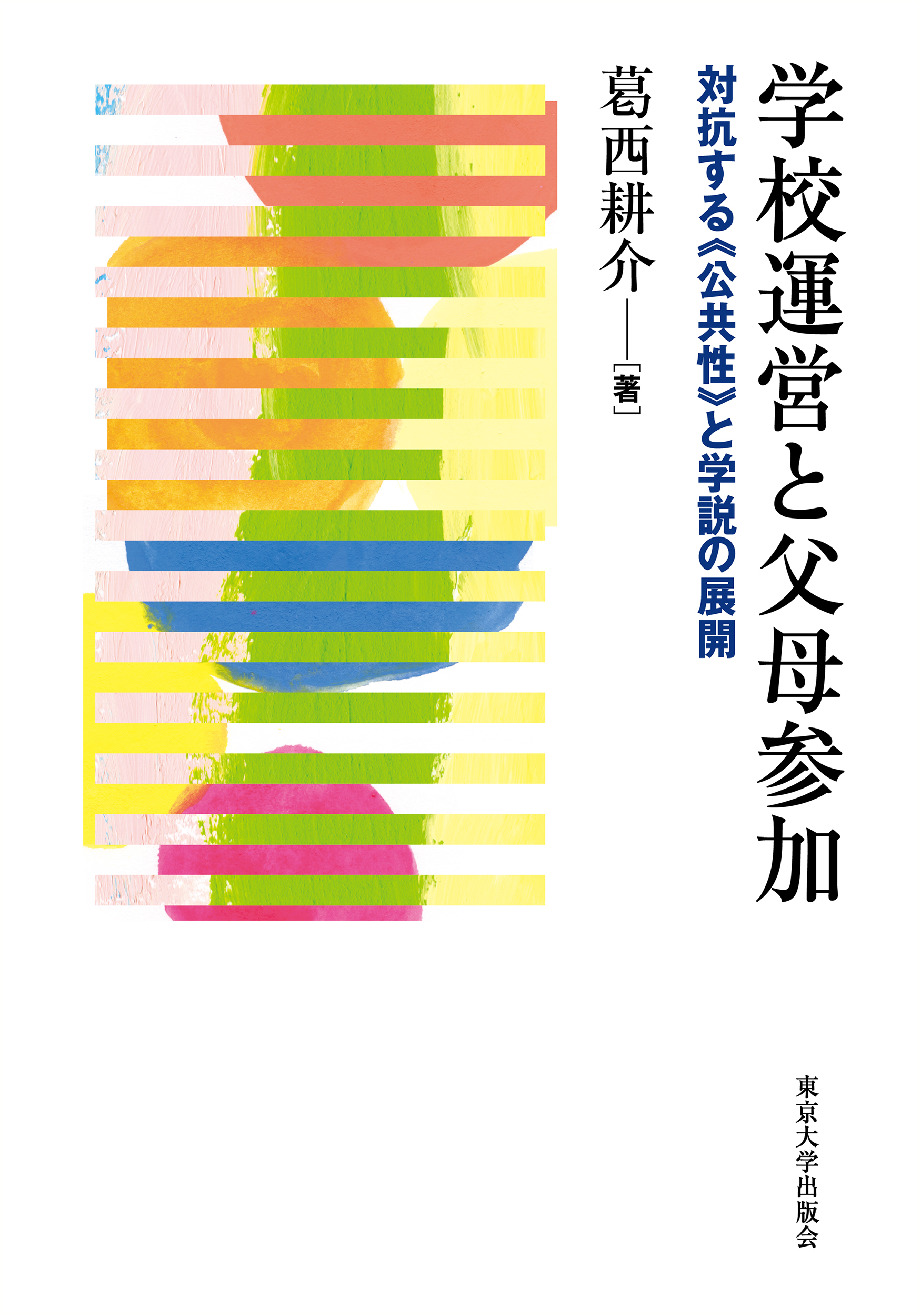
Title
Gakko Unei to Fubo Sanka (School Administration and Parental Participation - Competing Arguments on the Public Sphere and the Development of Theories)
Size
640 pages, A5 format
Language
Japanese
Released
April 14, 2023
ISBN
978-4-13-056238-6
Published by
University of Tokyo Press
Book Info
See Book Availability at Library
Japanese Page
What role do parents (guardians) play in public education? Is it not possible for parents to refuse any of the curricular content that their child’s school is delivering in accordance with Japan’s national curriculum standards, to demand that the school rectify an excessive or unreasonable rule imposed by school, or to issue requests about the curricular content? There are no parents in Japan who take such action in the first place? Why? How have the Japanese people envisaged the idea of public education? And how have the Japanese people defined the private and public spheres, given that how these are defined underpins ideas about parental participation in school administration? This book addresses these legal and ideological questions. Parental participation in school administration is a theme that cannot be fully fathomed by relying only on insights from the field of pedagogy. Accordingly, the author wrote this book more for experts in social science than for pedagogists.
The main theme of this book concerns school administration and parental participation. The book analyzes the various narratives on parental participation in school administration that have existed since the early postwar years. In doing so, it reveals the competing arguments around parental rights in education, exposing the chronological or contemporaneous development of the narratives. This book is academically valuable because 1) it is the first analysis to consider the development of the theories from the postwar years in their totality, and 2) it offers insights into educational management and school administration in the context of the government’s “community school” agenda. Furthermore, by focusing on the mounting pressure to redress the exclusion of parents, it is relevant to the situation of contemporary public education in Japan.
The novelty of the research consists in its categorization of the different narratives on parental participation in school administration according to their conceptions of the public sphere on which they are based. In this context, the “public sphere” describes the type of medium that is believed to form a communal body in a modern society that would otherwise consist of atomized individuals. Three typical conceptions of the public sphere were considered: 1) the public sphere as the state, 2) the public sphere as the market, and 3) the public sphere as the citizenry. To these, the author added two more: 4) the public sphere as the nation and 5) the public sphere as the laborers. This system of categorization proved successful in covering the full spectrum of narratives.
A distinguishing feature of this book is that it takes an interdisciplinary approach to the theme of parental participation in school administration. The author sought to demonstrate how this theme relates to Japanese social science in general. Academia has long been criticized for its insular, parochial mindset. As an academic text, this book does have its fair share of specialized, theoretical studies, which draws on and cites various studies. However, while the focus remains on pedagogy and educational management, the book considers a broad spectrum of perspectives (including those held by scholars of constitutional law, civil law, politics, history of social thought, educational history, and family sociology) to reveal how the different concepts and polemics have shaped ideas about parental participation in school administration.
Therefore, this book requires no special interest or expertise in either school administration or parental participation. The book’s analysis of the value and indispensability of including parents in education can offer insights into each academic’s particular field of interest. Suppose, for example, you specialize in pedagogy and have minimal interest in educational law or educational management; the book offers you insights into pedagogical development, elaborates an approach to postwar educational history, and provides international comparisons in education. For constitutional scholars, the book offers typical examples of claims about human rights and sovereignty; for scholars of civil law, the book serves as a resource for considering the bridge between public and private law; for scholars of politics, the book offers insights into social cohesion and political participation, along with a chronology of pre- and post-1945 political thought curated based on the competing conceptions of the public sphere; to scholars of social philosophers, the book offers insights into civil society and social democracy. No doubt, researchers in their respective specialist fields may find things they disagree with. The author welcomes feedback as part of an interdisciplinary effort to develop the social sciences in Japan.
(Written by: KASAI Kosuke / April 24, 2023)
Related Info
The 3rd UTokyo Jiritsu Award for Early Career Academics (The University of Tokyo 2022)
https://www.u-tokyo.ac.jp/ja/research/systems-data/n03_kankojosei.html



